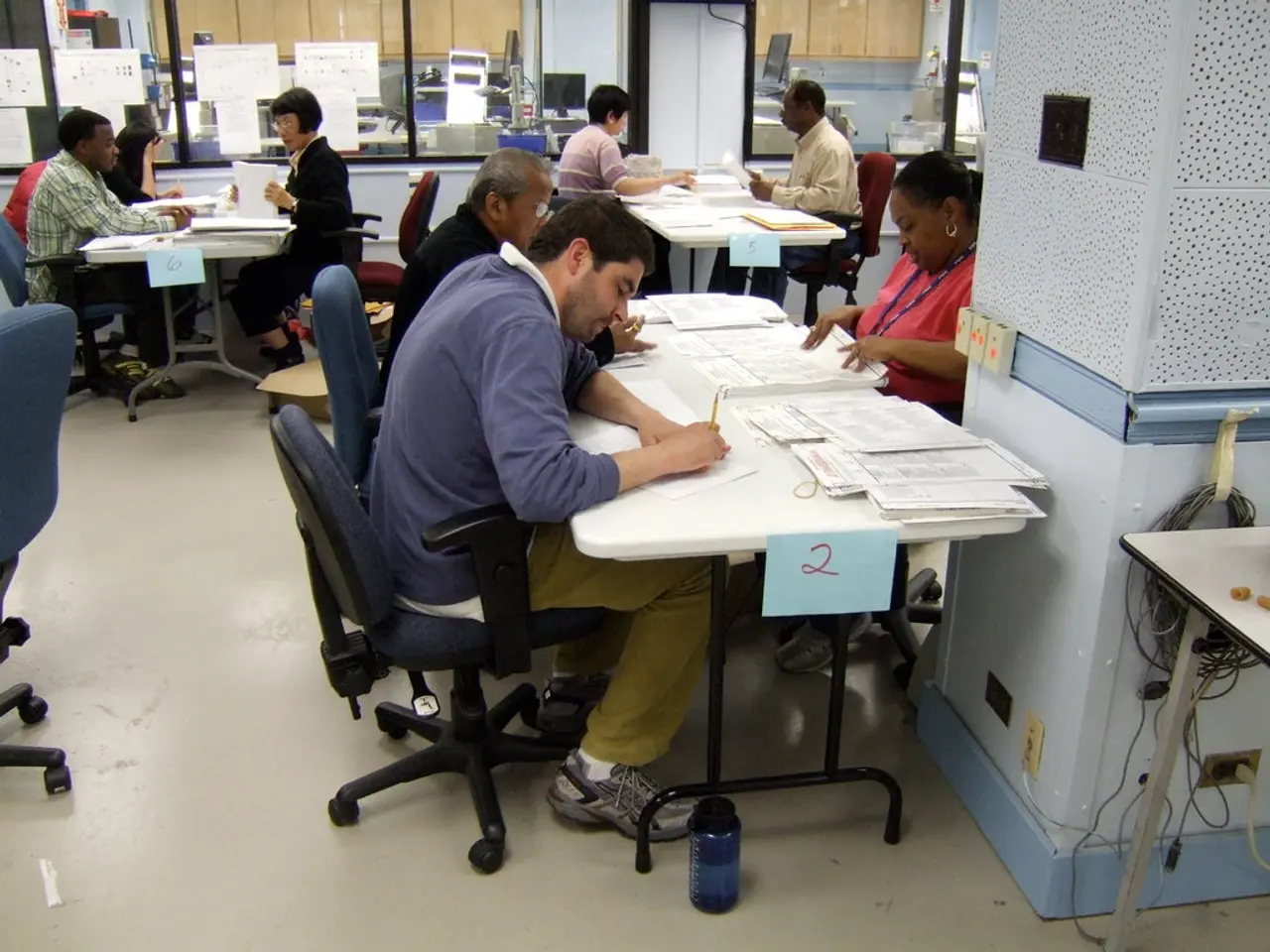Strategies for Disrupting a Colleague's Work Routine - Without Irritating Them
In today's digital age, the use of instant messaging and digital tools has revolutionized communication, but it has also presented new challenges in maintaining focus and efficiency. With remote work becoming increasingly common, interruptions have become more frequent due to the simultaneous demands of work and non-work responsibilities.
To optimize work interruptions for positive outcomes and minimize annoyance, a thoughtful approach is required. This involves balancing collaboration with the need for focused, deep work. Here are some strategies to help achieve this:
## Principles for Effective Interruption Management
### Setting Boundaries and Respecting Deep Work
1. **Scheduled Focused Work Blocks:** Encourage yourself and your team to set aside uninterrupted time for deep work, during which notifications, emails, and casual drop-ins are avoided. This minimizes unnecessary distractions and preserves high-quality output. 2. **Communicate Availability:** Make your deep work schedules visible to colleagues, so they know when you are focusing and when you’re open to collaboration. 3. **Physical and Digital Boundaries:** Use “do not disturb” modes and turn off notifications during focus sessions; employ noise-cancelling headphones or app blockers as needed. 4. **Time Blocking:** Allocate specific periods for checking messages and emails, rather than responding to every notification immediately. This reduces fragmentation and stress from constant context switching.
### Balancing Interruption Quality and Frequency
1. **Assess the Value of Interruptions:** Distinguish between interruptions that genuinely require your attention and those that can wait. Immediate responses should be reserved for urgent or high-impact matters. 2. **Evaluate Impact Subjectively and Objectively:** Regularly gather feedback from your team about which interruptions feel helpful versus disruptive. 3. **Fine-Tune Intervention Timing:** For tools that use “just-in-time” notifications, refine how often and at what moment notifications are delivered to minimize annoyance and intervention fatigue. 4. **Customize Notification Systems:** Consider personalization—what works for one person or team may not suit another, depending on roles, personalities, and workflow.
### Leveraging Data and Tools
1. **Monitor Distraction Sources:** Use productivity-tracking software to identify which interruptions are most disruptive and adjust policies accordingly. 2. **Task Management Tools:** Adopt task management software to organize priorities and reduce the need for spontaneous interruptions. 3. **Limit Multitasking:** Focusing on one task at a time improves both quality and efficiency, reducing the number of errors that might otherwise require later interruption to fix.
By following these principles, it's possible to foster a workplace where interruptions add value rather than annoyance. It's crucial to avoid interrupting when the person is already feeling overloaded, give warning before interrupting to allow the other person to mentally prepare, and find the right person for the job by ensuring they have the right skill sets and capabilities before interrupting. Interruptions are more likely to be perceived positively if they fall into the person's routine, if they are critical and more important than what they are currently working on, and if they lead to the completion of work with minimal disruption. Interrupting a superior can be seen as rude and out of line, but positive experiences of interruptions depend on how they affect work and if they are perceived as good use of time. Interrupt when the person is less busy or about to take a break from their regular work to ensure a smooth workflow.
In conclusion, by thoughtfully managing when, how, and why interruptions occur, it's possible to create a productive and harmonious work environment that respects the need for focused, deep work while fostering collaboration and innovation.
- In the realm of remote work, fostering a health-and-wellness culture is essential to counteract the manifestation of stress from frequent interruptions.
- Adopting these principles for effective interruption management can contribute significantly to the overall efficiency of business operations and career advancement.
- Embracing remote work can lead to an improvement in workplace-wellness, financial stability, and effective leadership, as long as interruptions are managed effectively.
- Executives should focus on promoting the benefits of focused work, while simultaneously encouraging collaboration and innovation in their teams through careful interruption management strategies.




